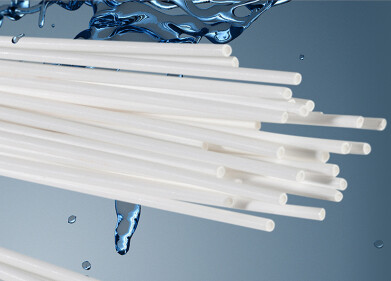Waste management
How Do We Get Rid of Plastics?
Dec 24 2021
Plastics have become so ever-present in our daily lives that hardly an hour goes by during which we do not interact with them. Whether it be in packaging or textiles, electronics or cosmetics, plastics are everywhere we turn. Of course, we are now aware that due to its long-lasting lifespan in the environment and its detrimental impact upon the flora and fauna all around us, it’s necessary to detach ourselves from this damaging addiction.
However, doing so is easier said than done. How can you dispense with a substance when it’s a key component of everything around you? While getting rid of plastics completely might be a tall order that’s currently beyond our grasp, these four ways can help to reduce our consumption levels and make our lifestyles that little bit more sustainable going forwards.
Recycling
Did you know that since 1950, just 9% of all plastic created, consumed and discarded has gone to recycling? The rest has ended up in landfill sites or, worse, our seas and oceans. That equates to some 6.3 billion metric tonnes over the years, the accumulation of which has had (and continues to have) devastating effects for marine animals and the environment in general.
It doesn’t have to be this way, however. There are a wide variety of products and items which can be made from recycled plastic, so it’s imperative that we address our profligate habits and prioritise the recycling of all eligible plastics as a matter of urgency.
Reducing
Of course, the best way to get rid of plastics is to stop using them altogether. Again, a blanket ban on plastics is unlikely to be tenable for most people, but we can make small adjustments to our daily lives in order to fight the rising tide of plastic waste.
For example, purchasing a reusable coffee cup instead of opting for a disposable takeaway one, using cloth nappies instead of prefabricated throwaway ones and bringing your own bags to the supermarket are just some of the ways you can reduce your plastic consumption. Switching out a plastic toothbrush for a bamboo one, buying drinks in glass bottles instead of plastic receptacles and phasing out the use of single-use plastics like straws, cutlery and food packaging can also help to curb your plastic habit.
Mitigation
Ideally, we’d never have produced such colossal amounts of plastic waste in the first place, but with the damage now done, it falls to us to mitigate it. To that end, scientists have been working on ingenious and innovative ways to clean up plastic pollution, including the unlikely combination of forensic science with artificial intelligence.
Nonetheless, such technological developments are still in their infancy. What each of us can do on a personal level is combat plastic pollution wherever we find it. That could involve calling out someone who litters, volunteering for beach clean-up missions or simply tackling the plastic waste we encounter around our homes.
Events
May 11 2025 Vienna, Austria
May 18 2025 Algiers, Algeria
23rd International Water Management Exhibition
May 20 2025 Prague, Czech Republic
Singapore International Water Week Spotlight 2025
Jun 23 2025 Singapore
Jun 25 2025 Sao Paulo, Brasil














